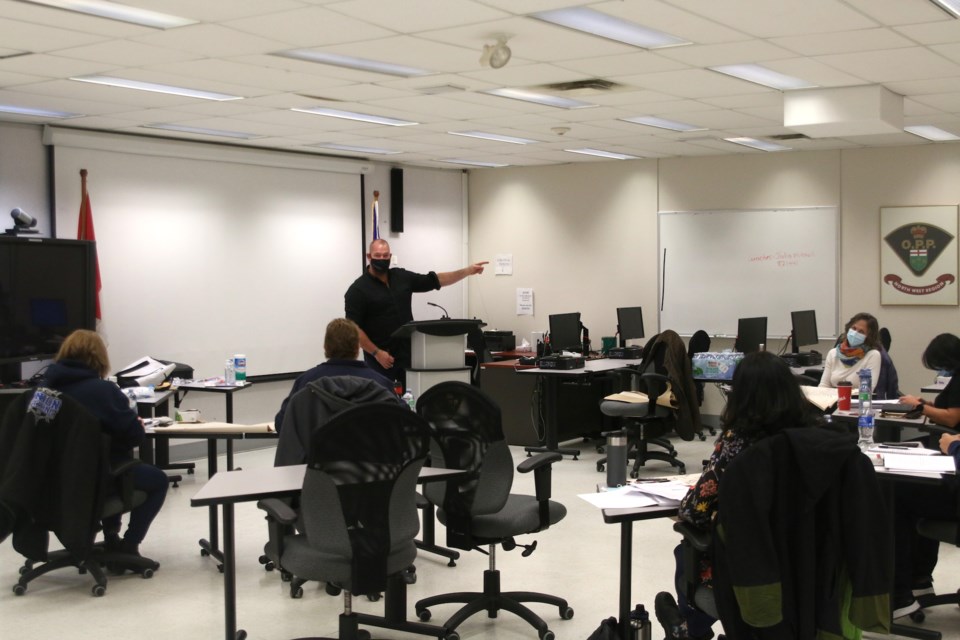THUNDER BAY - First responders deal with traumatic and difficult situations on a daily basis, which can have a lasting impact on emotional and mental health. For those seeking help, it is can often be easier to reach out to someone who shares an understanding of stresses that come with the job, and a peer support program is bringing the training to the northwest.
“First responders are a different breed,” said John Tsentouros, a former correctional officer in Kenora.
“We tend to not really open up to anyone else besides our peers. For myself in the corrections field, it’s hard to articulate and explain to someone else who’s never been inside an institution. It’s a really tough wall to break down. As first responders, we tend to keep people out of that loop to protect others. That’s what we do.”
Tsentouros was one of six current or former first responders undergoing training with Boots on the Ground, a peer support program for first responders.
Dave McLennan, a former Peel Regional Police Service officer, launched the program two years ago to provide first responders who are having difficulty dealing with the stresses of the job an opportunity to reach out and receive support from current or retired first responders.
“The idea of Boots on the Ground is to have people who can speak to others who have lived that life,” said Sharon Bak, northern operations manager for Boots on the Ground.
“It’s a lot easier for folks who have been part of those kind of types of calls before, those types of incidents to be able to call someone and have that conversation.”
The program has done tours of the region in the past to raise awareness about its services, but on Monday the first training session was held for volunteers in the northwest region.
“COVID has played a huge part in the delay of the training and making sure we had the protocols in place to keep everyone safe,” Bak said. “We are able to do that now, but we have to make sure we take all the precautions but there has been a delay.”
Tsentouros said the training on Monday involved a lot of sharing of experiences and teaching each other how to listen and offer support to people who may not know where to turn.
“I have first hand experience of the importance of peer support, especially in the first responder community,” he said. “It’s important to let people know there are programs out there for people suffering in silence or in crisis and that there is help out there.”
Bak said she hopes more people will volunteer for the program, adding the number of calls coming into the peer support line is increasing and the pandemic is a contributing factor.
“Our numbers are growing with the number of people who call the line, particularly because of COVID and the stresses that come along with that,” she said. “But there’s also the regular stressors of the job that first responders and frontline workers go through that call for our support.”
The peer support line is open to any first responders or frontline workers, including police, fire, EMS, as well as doctors, nurses.
But Bak said there are others who may not necessarily fit into the definition of a frontline worker or first responder who can also access the service, such as animal welfare workers, lawyers, and court staff.
“They are all really related to people’s mental health and wellness, the stressors of the job, family stressors that might come up,” she said. “A lot of stuff that has come up has been amplified by COVID, so even though they might be the same issues, there is an amplification of what people are going through.”
In the northwest and smaller communities with volunteer first responders, Bak said it can be difficult to access support services and Boots on the Ground helps fill that gap.
“The biggest support has come from the first responder community, particularly the volunteer teams in northwestern Ontario who really need something and they are promoting this organization in their emergency plans and their first responders,” she said.
“Even though we are up here in the north, there is help out here for first responders,” Tsentouros said.
The Boots on the Ground peer support line is open 24 hours a day, seven days a week and can be reached at 1-833-677-2668. For more information visit the Boots on the Ground website.
